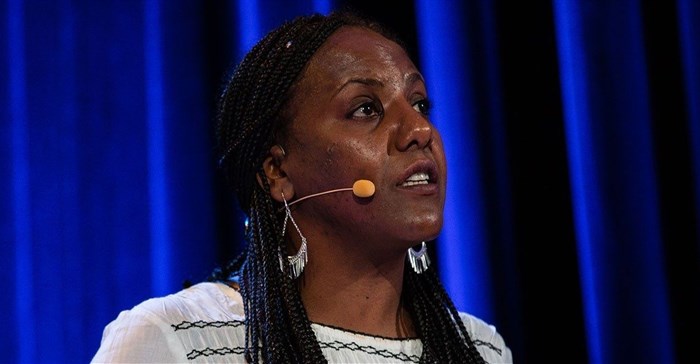
Top stories






More news

Marketing & Media
Warner Bros. was “nice to have” but not at any price, says Netflix

Logistics & Transport
Maersk reroutes sailings around Africa amid Red Sea constraints

















“Economic migrants are not refugees and the two should not be confused. In Europe, migration is the main topic in elections. While half a million people migrate through air travel and only 120,000 by boat, the focus is on the people in the boat,” said Meron Estefanos, an Eritrean journalist and human rights activist, speaking at the Oslo Freedom Form (OFF) in Johannesburg recently.
Her first memory is of her parents listening to the radio - to an illegal broadcast from liberation fighters. Shortly after this, her father, a political activist, fled to Sweden. “We joined him later. I was 13 at the time.” She considers herself one of the lucky ones.
“Because we went to Sweden, I grew up there and did not suffer the hardships most of the people of Eritrea did. Even when I decided to return to Eritrea, I did not have to do military service because of my Swedish citizenship.”
In Eritrea, you serve in the military from the age of 15 to 50. You are arrested if you try to leave the country. She says the president’s own ministers criticised him, but this only resulted in their arrest. It is estimated that there are 50,000 political prisoners in the country.
Her role as an activist started in Johannesburg. “In 2002 I returned to Eritrea, but I had no idea what I was going back to. As I had Swedish citizenship, I did not have to do military service, but everyone around me did.”
After her neighbour’s arrest, she decided she needed to do something. “There was a group of students from Eritrea operating from South Africa. I contacted them. They trained me as a journalist and I worked for them in Europe.”
Estefanos says that there are many incidents of groups of people in the country disappearing or being killed. “I remember the arrest of the Jehovah’s Witnesses in the country. Today, still, no one knows if they are alive or not.” She also saw the war veterans shot in the street.
.@meronina has saved 16 000 refugees through the use of her phone. @OsloFF #OFFinJoburg pic.twitter.com/BRa4F6jAPx
— SA Media Innovation (@SAMIP_MDIF) March 26, 2018
Estefanos is a radio journalist and she broadcasts into the country. “There is no media freedom in the country and the people are deprived of information. When the Arab Spring happened, they did not know.”
Her work extends beyond this - she is known for rescuing people. “People have got my number from somewhere and I receive phone calls from refugees in sinking boats crossing the Mediterranean. They tell me their lives depend on me.”
Her stories include slaves, people being held for ransom, women being raped. “They all call me, I try and help them, but it is heart breaking.”
The source of income for the government is mining. “There are 21 different minerals in the country. The companies operating and investing there are all intentional. They include Anglo Gold Ashanti as well as Canadian, Australian and Chinese companies. Nevsun, Chalice, and Donia are all in the country.”
Eritrea, in the Horn of Africa, has a population of 3.6-million people. In 1991 the country was freed from a 30-year occupation by Ethiopia by the Eritrean liberation fighters. The president, Isaias Afwerki, has been in office since independence in 1993. Eritrea is a one-party state in which national legislative elections have been repeatedly postponed.
According to Human Rights Watch, the Eritrean government's human rights record is among the worst in the world. The Eritrean government has dismissed these allegations as politically motivated.
